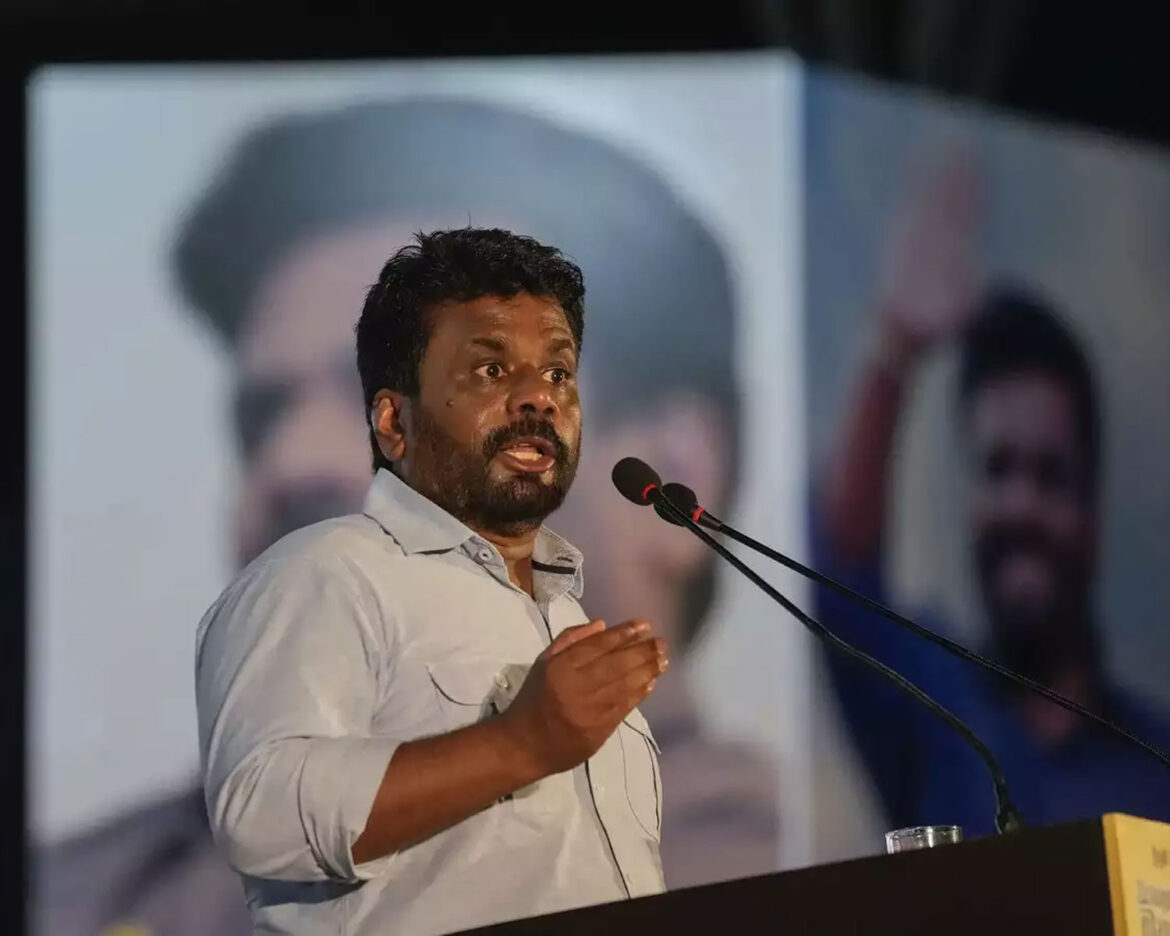Colombo, Sri Lanka — Anura Kumara Dissanayake, the Marxist-leaning candidate, was leading Sri Lanka’s presidential election with 40% of the votes counted on Sunday, seemingly eliminating the incumbent President Ranil Wickremesinghe. With half the ballots tallied, Dissanayake leads the race, followed by opposition leader Sajith Premadasa with 33%, while Wickremesinghe trails with 17%, according to the Election Commission.
This election marks the first since the nation’s economic collapse in 2022, which saw widespread protests and the resignation of then-President Gotabaya Rajapaksa. The economic turmoil, sparked by a foreign exchange crisis, led to severe shortages of essential goods, including fuel, medicine, and cooking gas, and forced many into poverty.
Dissanayake, 55, known for his fiery speeches and promises of change, represents the National People’s Power alliance, which includes his Marxist Janatha Vimukthi Peremuna (JVP) party. His platform appealed to voters disillusioned by austerity measures tied to the $2.9 billion International Monetary Fund (IMF) bailout. He promised to dissolve parliament within 45 days for fresh elections and to implement more pro-poor policies, which resonated with the millions of citizens still grappling with high living costs and poverty.
While his pledges to slash taxes have raised concerns among investors about the IMF’s fiscal targets and a potential $25 billion debt rework, Dissanayake assured that any changes would be made in consultation with the IMF and that Sri Lanka would honor its debt commitments.
Premadasa, 57, also campaigned on promises to renegotiate the IMF deal and reduce living costs, attracting significant support from farming communities in northern and central Sri Lanka. In the 2019 election, Premadasa finished second behind Rajapaksa.
As vote counting continued peacefully, with 75% of the 17 million eligible voters casting ballots, Sri Lanka’s future remains uncertain. If no candidate secures 50% of the vote, a second round will determine the winner.
The next president will face the immense challenge of maintaining the IMF program until 2027, steering Sri Lanka towards sustainable growth, and pulling a quarter of the population out of poverty.



